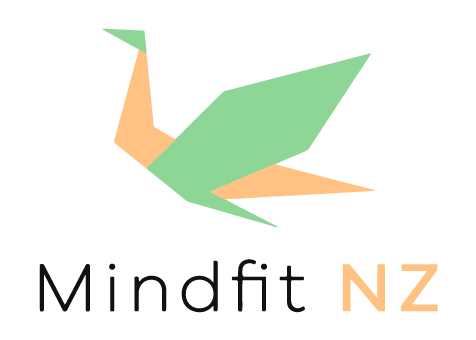Finding a therapist is no easy feat. It’s a bit like matchmaking and you may have to try out a few before you find the right fit and get the support you need. We hope this post makes this process a little easier for you. We truly believe it is worth it.
How to find a therapist:
- Through your GP (they can help you access low cost/funded services and/or can support you to access the WINZ Disability Allowance to pay for some counselling sessions. GPs are a great first point of contact to identify the help you need when you are having difficulty maintaining mental health).
- Through our directory (it will help you find a therapist and/or funding options for therapy).
- Through your workplace (If you are in paid employment you may be able to access free confidential counselling through your company’s Employee Assistance Program).
- Through your school/uni wellbeing centre (they often offer free counselling services).
- Through your local Women’s or Men’s Centers (they may have listings for low cost counselling practices or offer low cost counselling themselves).
- Through the Gumboot Friday Foundation (they provide funded counselling sessions for anyone in New Zealand who is 25 years of age or under).
- Through ACC (they fund support following sexual violence if it occurred in New Zealand. Visit the Find Support website)
- Through a local Charitable Agency (A local charity may be able to offer funding for counselling, so it could be useful to research the charitable organisations in your area and enquire about it).
When deciding on the “right” therapist:
- Write down a list of qualities you’d like a therapist to have.
- Find a few people who have experience in what you are dealing with. Check out their website, social media, blog posts etc and see if you feel comfortable with their approach.
- Schedule intro calls with them and write down some questions you want to ask them beforehand (some therapists offer complimentary phone consultations for potential new clients). If they don’t offer an intro call, write an email introducing yourself and what you’re looking for out of therapy. Here you can also ask your questions of the potential therapist(s). This can help you get more of a feel for whether this person will be the right fit for you and your needs before committing your time and financial and emotional resources to having a first session with them. Keep in mind that most therapists have a waitlist, so it’s useful to have a few options lined up.
These questions can include:
– Do you have experience with X (the issue you are dealing with)
– Why did you become a therapist?
– What type of therapy or modality do you use?
– What are your strengths as a therapist?
– Do you offer a sliding scale/any funding? What is your rate?
During the first session you may also like to ask:
– How often do I need to meet with you?
– How will we know if I am making progress?
– Can I be honest if there is something we are doing that I don’t like or feel comfortable with?
Remember a therapist is working for you. If you have a preference or request, be sure to tell them! Likewise, if something feels off or you aren’t comfortable, you do not have to keep seeing them. They are trained to be able to support you, which means they are good at not taking things personally.
The relationship and connection between you and your therapist is just as important as the tools and skills they provide. In fact, the therapeutic relationship is one of the most important predictors of your success! Just like there are many people in our lives that we don’t click with or choose to be friends with, therapists are human too and sometimes no matter how qualified or skilled they are, we will just not ‘click’ with them as a person. This is okay and we have made this guide to help you get a better sense of this before/during your first appointment. It also means that if it doesn’t work out with one therapist, it doesn’t mean that there’s something wrong with you or that therapy doesn’t work for you. Phew!
To get the most out of therapy:
Before your first session you may also like to journal on some topics you’d like to explore as well as what your goals are for therapy/ what you would like to accomplish.
Ask yourself the following…
- What are my goals for therapy?
- How will I know I’ve accomplished my goals in therapy?
- Fast forward to the end of therapy, how will my life look different? How will I feel?
Feel free to share these answers with your therapist! A general tip to get the most out of therapy is to keep notes about what happens or things you want to bring up in your next session. This will prevent you from forgetting what you want to say when you sit down for your appointment.
Have general nervousness about the first session and what to expect?
Most therapy offices are set up with a few chairs and a couch. Most times the client sits on the couch. Typically therapists start with asking what brought you to therapy. You can share as much or as little as you want. The main purpose of the first session is getting to know you. It’s normal if there are not a lot of practical tools given. This doesn’t mean you won’t get them but also be sure to tell your therapist if that is important to you! Similarly, if you’ve been to therapy before and not found it useful, tell them why so they can better cater to your needs. In your first session your therapist will also talk through confidentiality and may get you to fill out some paperwork.
We recommend you schedule some time before and after your session. No matter how clear directions are, when you’re nervous it’s easy to make a wrong turn and you don’t want to have to worry about being late. Get there early and schedule some time after the session to decompress.
Once we start therapy, sometimes we can hope for immediate relief. The truth is, we can feel anxious about going and therapy can make us feel worse sometimes before we feel better. All of this is a normal part of therapy! It doesn’t mean you are doing it wrong! Remember, your relationship with your therapist is like any other relationship, it won’t be created in one hour. It’s going to take some time to build trust and feel comfortable.
Therapy as a mental health tool:
We don’t believe that therapy is for broken people. We truly believe therapy is for EVERYONE and that anyone can benefit from it. In fact, coping strategies are often the most effective when you aren’t in crisis.
Sometimes underlying issues will need to be resolved in order to improve your mental health in the long-term. Learning to cope with the triggers of depression/anxiety without healing from the underlying contributing factors can act merely as a bandage and may not prevent it from returning. Sometimes making positive changes to your lifestyle is not enough. This is where the support of talking therapy comes in. It can help resolve underlying trauma(s), as well as help you learn/uncover/hone healthy coping skills that will help you to maintain your long-term wellbeing.
Treating mental health problems isn’t all medication and therapy, it is important to remember there are so many other things that help accelerate this healing journey too. Therefore, while therapy has great benefits and makes a helpful addition to your mental health toolkit is often not the one-and-only solution. Putting all of our eggs in one basket and solely relying on one thing to ‘heal’ us will often lead to disappointment. A diversified treatment plan is where it’s at.

